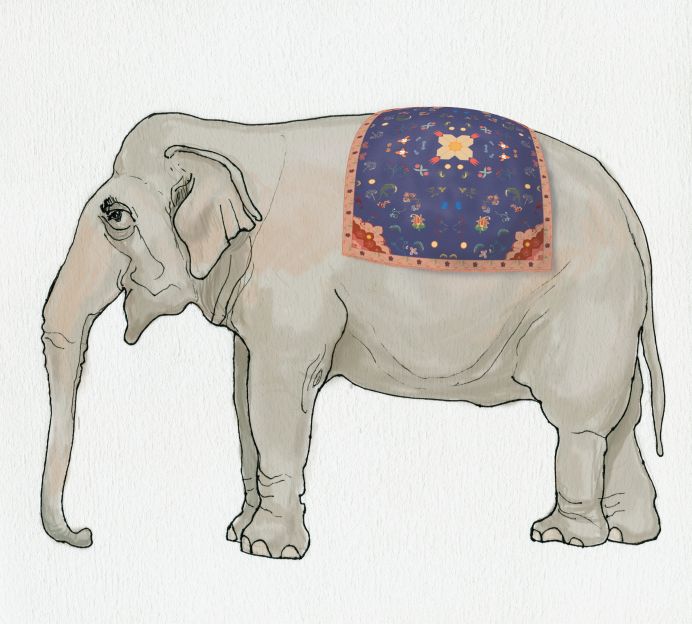Si tu continues à regarder la lampe, tu es perdue: c’est là que naît l’apparence des nombres et variétés.
Les lampes varient, mais la Flamme est toujours pareil, venant de l’Au-delà.
Regarde plutôt la Flamme, et libère-toi du dualisme que le corps, fini, incarne.
O toi qui es le noyau de l’Existence, le conflit entre Musulman, Zoroastrien, et Juif
ne dépend que du point de vue.
Des Hindus ont amené un éléphant, qu’ils ont exhibé dans un hangar obscur.
Comme le voir de l’oeil fût impossible, tous le tâtonnèrent de la paume de la main.
La main de l’un est tombée sur sa trompe, et il demanda, “Ô! Ces animaux sont-ils semblables à des conduites d’eau?”
Un autre toucha l’oreille. La créature comme un éventail lui semblait pareil.
Un, qui saisit la jambe, imagina un pilier.
Un dernier, glissant la main sur le dos, dit, ‘Mais non, il ressemble à un trône, en vérité!’
Mais si chacun eût allumé une chandelle, il n’y eût eu rien de contradictoire dans leurs mots.
The One True Light
The lamps are different, but the Light is the same: it comes from Beyond.
If thou keep looking at the lamp, thou art lost: for thence arises the appearance of number and plurality.
Fix thy gaze upon the Light, and thou are delivered from the dualism inherent in the finite body.
O thou who art the kernel of Existence, the disagreement between Moslem, Zoroastrian, and Jew depends on the standpoint.
Some Hindus brought an elephant, which they exhibited in a dark shed.
As seeing it with the eye was impossible, every one felt it with the palm of his hand.
The hand of one fell on its trunk: he said, “This animal is like a water-pipe.”
Another touched its ear: to him the creature seemed like a fan.
Another handled its leg and described the elephant as having the shape of a pillar.
Another stroked its back. “Truly,” said he, “this elephant resembles a throne.”
Had each of them held a lighted candle, there would have been no contradiction in their words.
Rumi, Mathnawi III, 1259
Translated from the Persian by Reynold A. Nicholson
French translation from Nicholson by A. Bayliss

Leave a Reply